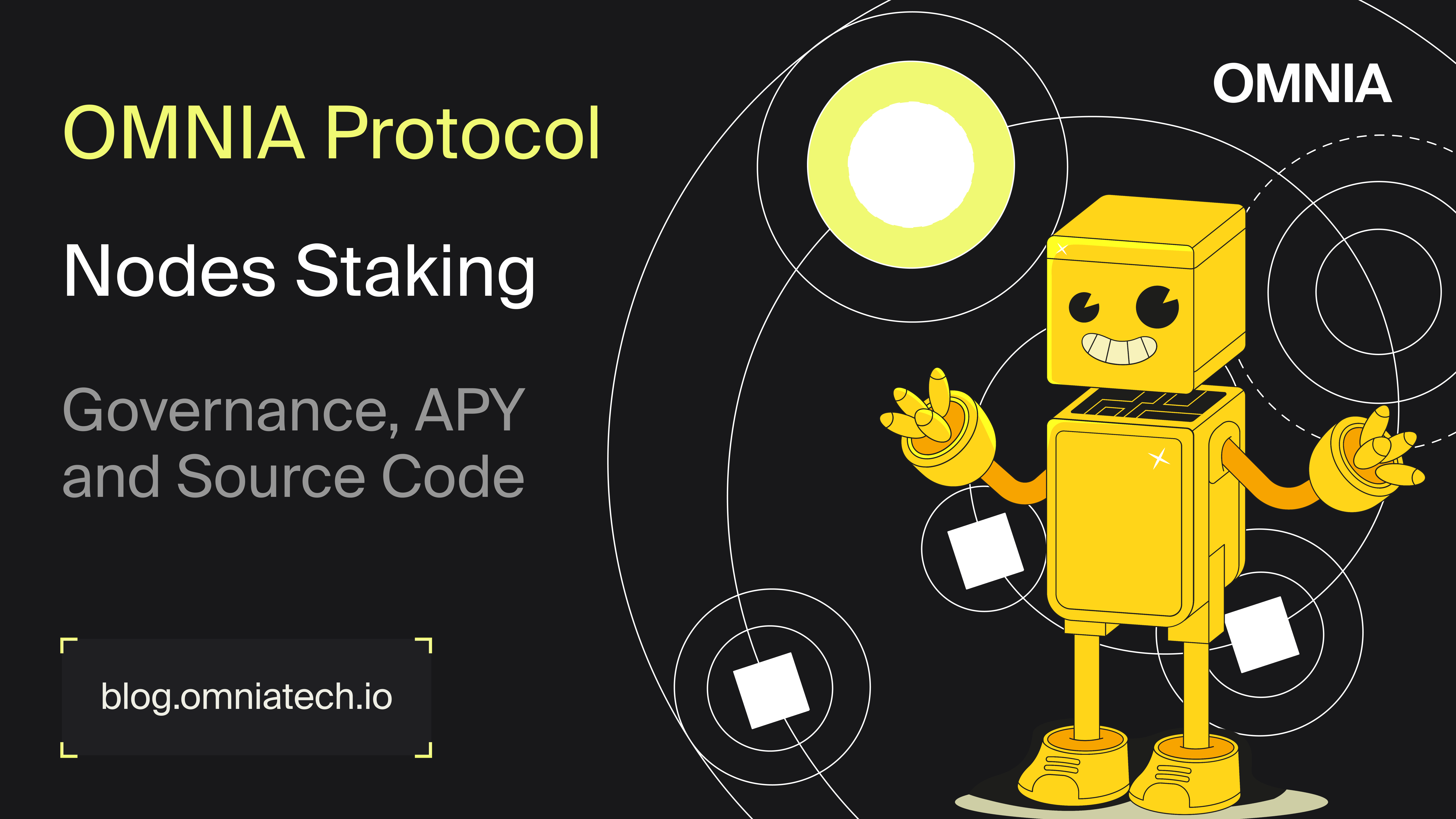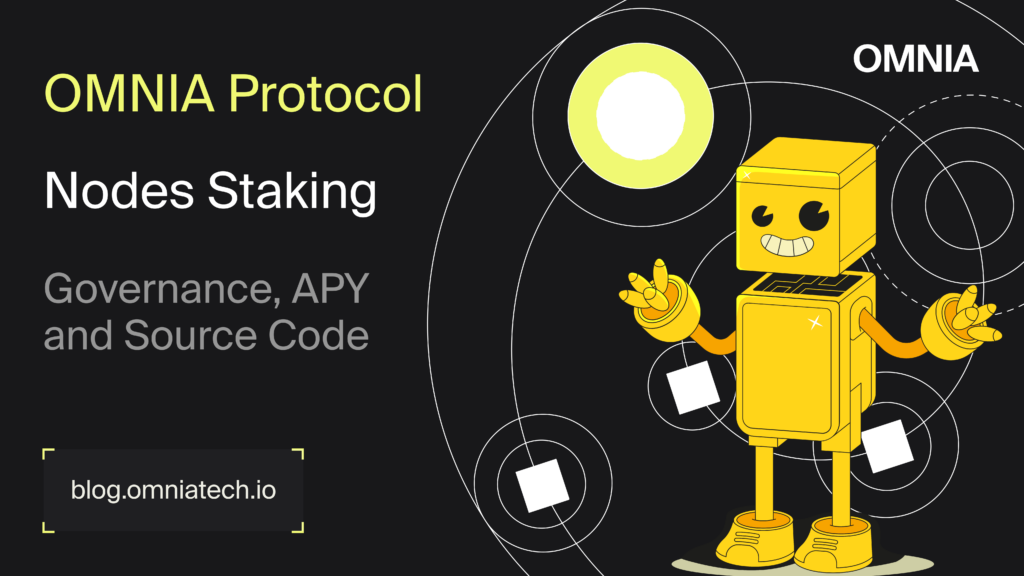
OMNIA Protocol Nodes Staking – Governance, APY and source code

First things first – if you don’t know what staking on nodes is about within OMNIA Protocol ecosystem, start here.
For more details on how you can start staking on OMNIA Dashboard, read this article.
Staking contract has been deployed on BSC Mainnet network, the only authorized portal to perform staking on BSC Mainnet is our OMNIA Dashboard.
Staking contract – security profile
Security sits at the forefront of our efforts, reflected not only in the security enforcing features we integrate in our RPC product, but also in our actions to ensure that on-chain logic is audited by independent third party experts.
The staking contract makes no exception to this rule, and this is why we worked together with CertiK, to audit the staking contract and also to review the security profile of our project on the Skynet Dashboard.
Source code
The entire source code of the staking contract can be found both in our Github staking-contract repository and in BscScan explorer contract page.
The on-chain staking consists in multiple contracts and libraries:
– Multisig Admin ( 0xc0b8b9a76a1ca9a7b338ce779fc5961dcc132ba7 ) – this is a Gnosis Safe multisig wallet to ensure quorum based control (2 out of 3) for all admin functions. The multisig admin can’t directly change the staking and can only do so through the timelock admin contract (see below).
– Timelock Admin ( 0xBF4054Ea9031feb8e45207AbD46542607550B745 ) – this represents the timelock contract, based on the TimelockController from OpenZeppelin governance templates, that ensures industry best practices when it comes to admin related functions. It will only accept transactions from the Multisig Admin wallet.
– StakingUtils Library ( 0x4f99bd51CdDEb68Bcfc14137181b6ed5BE33330f ) – this library is re-used by the StakingSettings and Staking contracts. It contains data structures and various utility functions that perform yield related computations.
– StakingSettings ( 0xA45c82E50AfD1B3Af0AdF6E35b07459E7357D3Ab ) – this contains all the settings used within the Staking contract, from min/max RPS to NFT related APY boost and APY-performance curve parameters.
– Staking ( 0xD9B4861a9bedEd254834791b1232C1458563de04 ) – this is the implementation contract that contains the main logic of staking, claming and unstaking, leveraging the settings and utility functions from contracts above.
– Transparent UUPS proxy ( 0x11e570bc0a080805da4d2da5bdf925ac3affab64 ) – this is the proxy that will be used as entry point in all Staking on-chain logic, thus implementing the transparent UUPS proxy pattern.
Governance
The Multisig Admin is controlled by a 2-out-of-3 quorum, and the designated admins are :
– Multisig Admin 1 : 0x25Ef471B08C61462F721e75204F139e4a23a5e7E
– Multisig Admin 2: 0x78a416e785EC460c71B4dd2dd382eCEa43686013
– Multisig Admin 3: 0x8408b137cF7b36A778dd2e1692DeB489C57A7067
The above admins need to cooperate in order to produce valid transactions towards the timelock contract.
The timelock contract is the only way to perform changes within the staking contract, but only after a series of proposal & execute actions that require at least 48h between these two operations.
Each proposal/execute transaction requires to be issued from the Multisig Admin wallet , thus requiring 2 out of 3 admin signatures.
This setup ensures that whenever a new change is pending, the community has at least 48h to see the proposal on-chain before it actually executes and produces effects.
Smart contract audit
Once the final audit report will be redacted, it will be available both on CertiK’s Skynet dashboard and on our official channels.
Disclaimer: Nothing in this article shall be deemed to constitute a prospectus of any sort, or an invitation, or a solicitation for investment, nor does it in any way pertain to an offering, invitation, or solicitation of an offer to purchase any security, ownership right, stake, share, future revenue, company participation, or other equivalent rights in any jurisdiction. Information in this document also does not constitute a recommendation by any person to purchase tokens, currencies, or any other cryptographic assets; neither the Project has authorized any person to provide any recommendations of such kind.